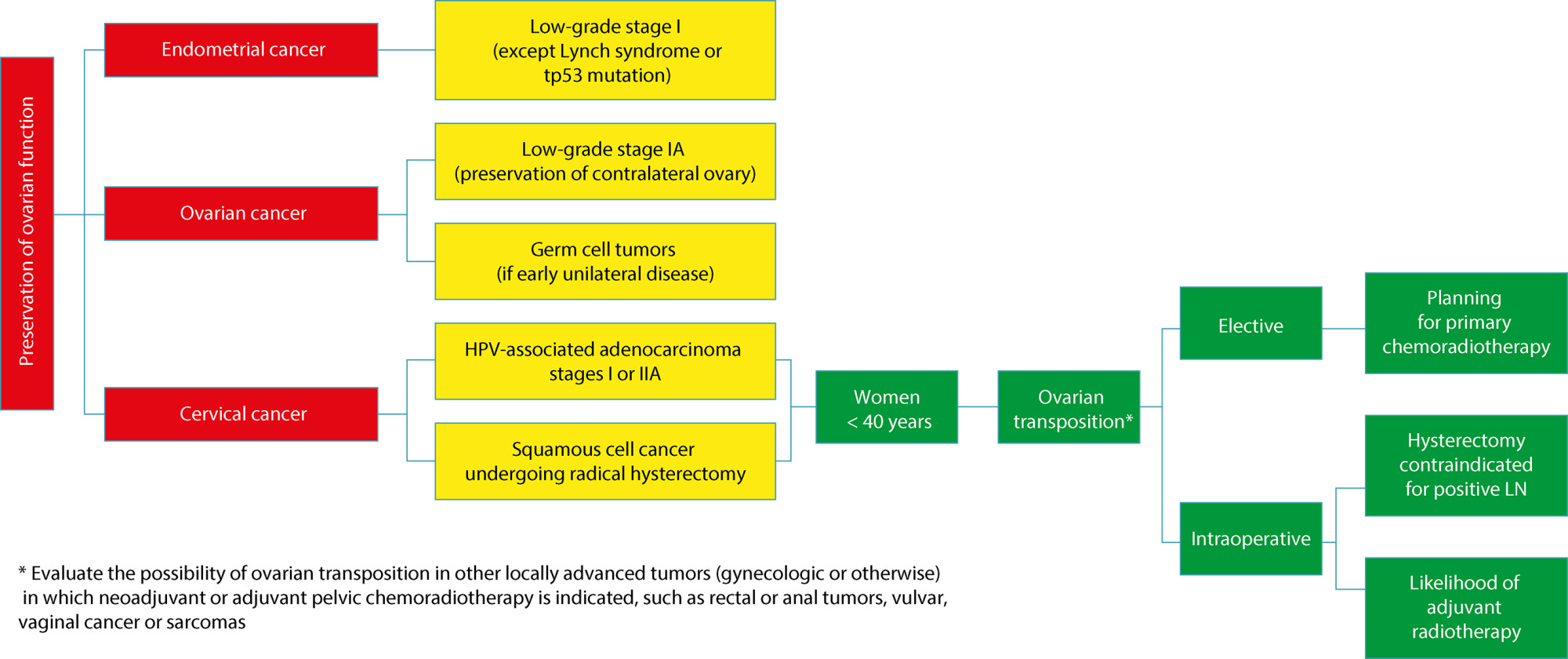Revista Brasileira de Ginecologia e Obstetrícia. 02-06-2025;47:e-FPS1

• Although advances in the treatment of gynecological cancer have improved survival rates, they may also increase the effects of induced menopause, especially in young women.
• Cancer treatments such as oophorectomy, gonadotoxic chemotherapy, and pelvic radiotherapy can induce menopause.
• Gonadotoxic chemotherapy, especially alkylating-containing regimens, often damages ovarian function and may result in permanent menopause.
• Pelvic radiotherapy usually results in permanent loss of ovarian function unless ovarian transposition is performed.
• Diagnosing menopause after cancer is challenging, and common diagnostic criteria such as 12 months or more of amenorrhea and elevated follicle-stimulating hormone (FSH) levels are not entirely reliable, since ovarian function may return years after treatment.
• A multidisciplinary approach to post-cancer menopause is essential and should include an appropriate line of care, since hormone replacement therapy after treatment of gynecologic malignancy is controversial.
Search
Search in:


Comments